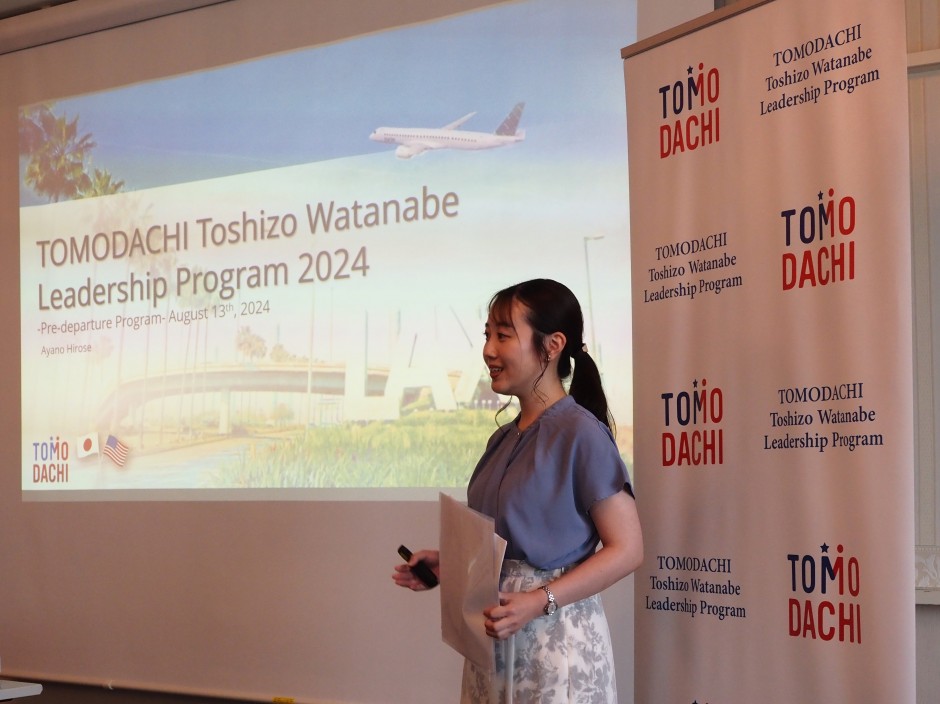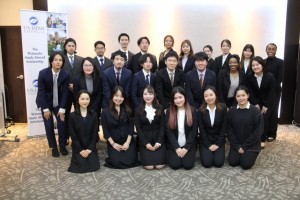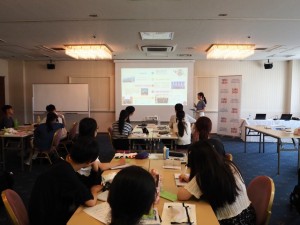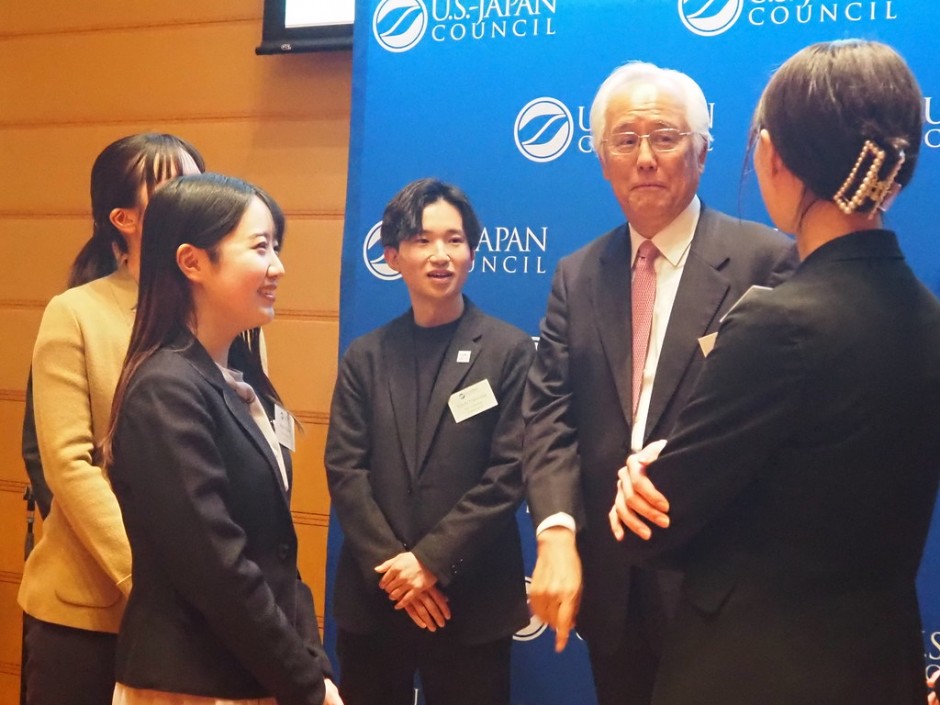TOMODACHI Initiative Intern: Ayano Hirose’s Experience

Ayano Hirose, a TOMODACHI Initiative (TOMODACHI) intern since May 2023, has deepened her interests and career direction through encounters with diverse individuals through TOMODACHI and U.S.-Japan Council (USJC) programs. She says her interest in Japanese American history and U.S.-Japan relations is at the core of her experience at TOMODACHI, and she is linking it to her graduate school research and future career. Currently enrolled in the Graduate School of Arts and Sciences at the University of Tokyo, she shared her experiences to date and her future plans.
How did you know about TOMODACHI, and why did you want to intern with TOMODACHI?

I found TOMODACHI when I received the Toshizo Watanabe Study Abroad Scholarship from the U.S.-Japan Council while studying abroad in the United States during my second and third years of university. When I learned about TOMODACHI as part of the USJC’s programs, I viewed it as an initiative that promotes mutual understanding and helps build lasting relationships between young people in Japan and the U.S. I have been interested in U.S.-Japan relations and U.S. history since high school. However, my interest deepened further when I learned more about Japanese American history during a leadership training program I participated in while studying abroad. During the training program, I had the opportunity to speak with a USJC staff in the U.S. When I expressed my desire to work in U.S.-Japan relations in the future, she informed me that TOMODACHI offered an internship experience in Japan as well. I immediately applied and began my internship at the Tokyo office in May 2023 after returning to Japan.
What kind of work do you do?

I am mainly responsible for translation and administrative tasks, as well as creating promotional posters and conducting preliminary research for the program, which begins this summer. One of the most memorable experiences was my involvement in the TOMODACHI Toshizo Watanabe Leadership Program during the summer of 2024. As part of a pre-departure training session for high school participants visiting the Japanese American National Museum, I gave a lecture on the history of Japanese Americans, presented video footage of interviews I conducted with Japanese Americans while studying in the U.S., and offered a quiz-style learning opportunity. I was very glad to contribute, this time as an intern, to a program funded by Mr. Toshizo Watanabe, who had previously supported me with a scholarship to study in the United States.
During my first year as an intern, I was also involved in preparing the annual report. This job was very challenging, requiring me to work closely with many people and meet tight deadlines. However, the sense of accomplishment I felt upon completing the work was great, and it was an experience that enabled me to recognize my own personal growth.
What insights or lessons did you gain from this internship?
I did not set a clear goal at the beginning of my internship; however, I aimed to consider how I could engage in U.S.-Japan relations in the future by taking advantage of the opportunity to interact with various people. In the course of my work, I had the chance to participate in the Business Advisory Board and the Annual Conference. These experiences allowed me to talk directly with people active in business, politics, and academia, significantly broadening my perspective. Furthermore, I received a lot of inspiration from the staff during my daily work, and I feel that my experience as an intern has provided a solid foundation for my future career considerations. The most important lesson I learned from this experience is that my previously vague aspiration to work in U.S.-Japan relations has evolved into a more concrete career vision.

How about your future career?
I am currently enrolled in a master’s program and plan to pursue a doctoral program upon completion. After that, I am interested in both pursuing a career as a researcher focusing on Japanese Americans and working for an international organization involved in human rights issues. My participation in the USJC’s program, along with my internship at TOMODACHI, served as a major catalyst for my interest in pursuing a career in this field. In the future, I would like to continue contributing to the U.S.-Japan relationship in my own unique way.


